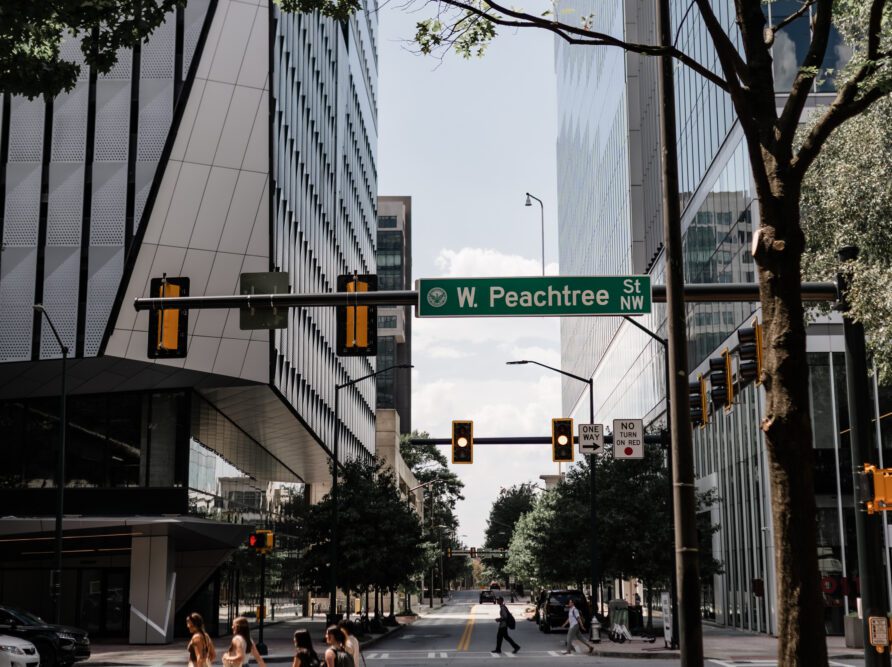Throughout your student housing search, you have probably had a lot of questions– especially ones surrounding leasing, contracts, insurance, etc.
Read Next: 5 Reasons to Sign an Individual Lease as a Georgia Tech Student
One of the most confusing parts of the leasing process can be figuring out renter’s insurance. You may be thinking, what even is renter’s insurance? Do I have to have it? What does it cover?
Luckily, you’re not alone.
At Rambler Atlanta, we want to help you navigate the leasing process and the steps that follow, like getting renter’s insurance. To assist you in this process, we have made this student’s guide to renter’s insurance.
In this article, we will answer all of your renter’s insurance questions, including:
- What is renter’s insurance?
- Do I need renter’s insurance?
- What does renter’s insurance cover?
- How much does renter’s insurance cost?
- How do I get renter’s insurance?
A Georgia Tech Student’s Guide to Renter’s Insurance in Midtown
What is renter’s insurance?

On its most basic level, renter’s insurance is a form of protection for a renter throughout the duration of their lease.
While renter’s insurance comes in many forms, policies generally cover damages to you or your landlord’s property caused by theft, fire, natural disasters or other catastrophes.
It’s important to check what specific renter’s insurance policy you’re opting into so you can know what all is covered. Some policies may protect your personal property and belongings, while others cover personal liability.
Do I need renter’s insurance?
Renter’s insurance is super important.
It’s a common mistake to believe that your landlord will reimburse you for damages to your personal property that you did not cause. But, without renter’s insurance, there are very few situations that would hold your landlord liable to cover your losses.
For example, if a pipe bursts in your apartment and ruins your laptop and tablet, you would be the one responsible to pay out-of-pocket to replace those items if you do not have a renter’s insurance policy.
Many student apartments in the Midtown area will require tenants to have renter’s insurance and may even offer their own policy. This allows the apartment complex to decide what types of property are covered and to what dollar amount the policy covers.
What does renter’s insurance cover?
Renter’s insurance provides protection for tenants during their lease in a rental property. Plans typically offer coverage for damages to the renter’s personal property or belongings caused by fire, theft, natural disasters or other unforeseen events. There are different coverage types, including personal property coverage, personal liability coverage and additional living expense or loss of use, coverage.
Personal property coverage protects your belongings from covered incidents like fire or theft.
Personal liability coverage protects you if you’re held responsible for injuries in your property or damages to someone else’s property. For example, if someone slips and falls on your property or you accidentally damage someone else’s property, personal liability coverage can help cover medical expenses and legal fees.
Additional living expense or loss of use, coverage helps cover the cost of any extra expenses you may face if forced to leave your property. This can include additional costs associated with food, transportation, pet care and boarding and so on.
How much does renter’s insurance cost?
Renter’s insurance policies in Midtown can range from $5 to $20 per month. The price of the policy will vary depending on the location of the apartment and how much coverage you would like.
Read Next: 9 Additional Costs to Consider When Looking for an Apartment near Georgia Tech
How do I get renter’s insurance?

The lobby opens up to Daydreamer, Rambler’s in-house coffee shop and leads upstairs to the second floor study mezzanine.
Students living in off-campus apartments have several ways to get renter’s insurance.
The first way is through the landlord’s insurance. Many properties offer their own policies that will either be added to your lease automatically or given as an option to opt into. These policies typically cover damages to building and personal liability, but will likely not cover your personal items. Be sure to read through this policy and ask questions so you know what all is covered.
Another option is to go through a parent’s homeowners policy. It’s possible that their policy covers your belongings even though you aren’t actually living at home anymore. This coverage is typically limited to 10% of the policy’s personal property coverage. Your family should check their insurance policy and review your landlord’s requirements to see if you are potentially covered.
Your last option is to have your own policy. Even if you are eligible to be on your parent’s policy, you may decide you want your own policy with more coverage. If this is the case, there are several online resources to help you customize an affordable plan.
We hope this article gives you a better understanding of renter’s insurance and why it is important to have. If you have any questions about renter’s insurance or would like to learn more about Rambler Atlanta, please contact our leasing staff!






